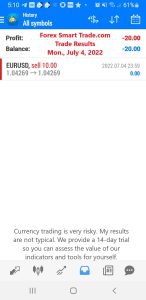Let’s learn more on why it is better to trade forex than futures.
It’s not just the stock market. The forex market also boasts of a bunch of advantages over the futures market, similar to its advantages over stocks.
But wait, there’s more… So much more!
Liquidity
In the forex market, $6.6 trillion is traded daily. This makes it the largest and most liquid market in the world.
This market can absorb trading volume and transaction sizes that dwarf the capacity of any other market.
The futures market trades a puny $30 billion per day. Thirty billion? Peanuts!
The futures markets can’t compete with its relatively limited liquidity.
The forex market is always liquid, meaning positions can be liquidated and stop orders executed with little or no slippage, with exception to extremely volatile market conditions.
24-Hour Market
At 5:00 pm EST Sunday, trading begins as markets open in Sydney.
At 7:00 pm EST the Tokyo market opens, followed by London at 3:00 am EST.
And finally, New York opens at 8:00 am EST and closes at 4:00 p.m. EST.
Before New York trading closes, the Sydney market is back open – it’s a 24-hour seamless market!
As a trader, this allows you to react to favorable or unfavorable news by trading immediately.
If important data comes in from the United Kingdom or Japan while the U.S. futures market is closed, the next day’s opening could be a wild ride.
Overnight markets in futures contracts do exist, and while liquidity is improving, they are still thinly traded relative to the spot forex market.
Minimal or no commissions
With Electronic Communications Brokers becoming more popular and prevalent over the past couple of years, there is the chance that a broker may require you to pay commissions.
But really, the commission fees are peanuts compared to what you pay in the futures market.
The competition among spot forex brokers is so fierce that you will most likely get the best quotes and very low transaction costs.





